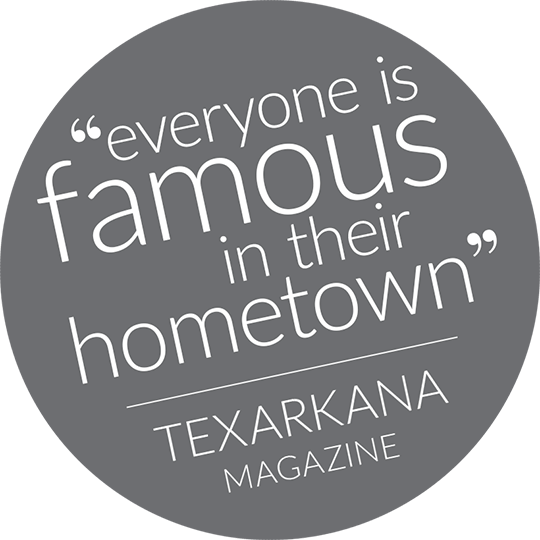The Upside of Envy

In the classic holiday movie, A Charlie Brown Thanksgiving, the character Peppermint Patty famously chastised Charlie Brown by saying... “Look at this! Is that what you call a Thanksgiving Day dinner? Where’s the turkey, Chuck? Don’t you know anything about Thanksgiving dinners? Where’s the mashed potatoes? Where’s the cranberry sauce? Where’s the pumpkin pie? Did we come across town for this? We’re supposed to be served a real Thanksgiving dinner.”
Does this sound familiar? As the holidays approach, do you find yourself thinking, “I’m just not feeling it this year?”
President George Washington first proclaimed Thanksgiving as a national holiday in 1789. He pronounced the holiday to be “a day of public thanksgiving and prayer to be observed by acknowledging with grateful hearts the many signal favors of Almighty God, especially by affording them an opportunity peacefully to establish a form of government for their safety and happiness.”
Since its origin, Thanksgiving has morphed into many other things besides a traditional Thanksgiving dinner and prayer. It’s not unusual to scroll through various social media platforms, only to find your friends and multiple influencers posting pictures of elaborate table settings and fancy Thanksgiving Day meals coupled with fine wines. Or maybe you have seen pictures of your pals attending the National Football League and college football games throughout the holiday weekend. A few lucky comrades may be in New York for the Macy’s Thanksgiving Day Parade and shopping. Oh, the shopping! These days, Black Friday shopping has become as much a part of the holiday as eating and football! Multiple friends will surely post pictures of themselves with their tribes in matching tees, scoping out the deals available around town.
Amid all this, you may look down at your paper plate filled with casseroles and canned food and wonder why these awesome adventures have somehow eluded you. Maybe you feel lonely, sad, or ungrateful. Or, possibly, you even feel a bit envious.
In her book, Atlas of the Heart, Brené Brown sites a 2015 study reporting that 90 percent of all envy can be attributed to the following:
- Attraction (physical attractiveness, romantic attraction, and social popularity)
- Competence (intelligence and knowledge)
- Wealth (financial status or lifestyle)
Fritzi Nelson Hemphill is a therapist in Little Rock with deep roots in Texarkana. She states envy is a common topic among her patients. “It often involves fear of missing out (FOMO) and has been exacerbated by social media. People see perfect images that seem like perfect lives and get that ‘less than’ feeling. Envy says, ‘I want what you have.’” Hemphill goes on to say, “Awareness gives the opportunity for change–refocus, reframe, and/or challenge… We often feel both envy and jealousy when we are unsure of our own value and opportunities for contribution.”
Local physical therapist and life coach Tammie Luthringer encourages her patients to steer clear of emotions like envy. “They don’t go far in helping a person improve their life. When I challenge a person to describe what they are actually feeling, it allows them to reflect on what they want for themselves and not on others and what they have. You’d be surprised how many people struggle with finding something nice to say about themselves. There’s good work to be done there.” She encourages her patients not to worry about what others have, but to concentrate on what they want for themselves. “You can plan to have whatever you want. It’s not healthy to want what others have. God even tells us not to do that. There’s no room in your heart to receive what is good if your thoughts are constantly on someone other than yourself and your family.”
Lauren McLaughlin, a North Carolina resident who is a native of Texarkana, specializes in life coaching and movement. When it comes to our physical appearances, McLaughlin says she and her clients discuss and deal with envy daily. Her Gen X clients seem to be consumed to a greater degree with what others think. “They have a desire to have bodies, hair, lashes, and nails like others they see or know. It is more a case of physical envy than material envy in my practice.”
McLaughlin encourages her clients to accept their feelings 100 percent. “Acknowledge it, embrace it, and write about it. Don’t shove it. That will only create an angry dragon. Continue to ask yourself why you feel envious of another person. Mindfulness and gratitude are superficial until you get to the why,” she says. Much of her work around envy centers on the fact that people don’t love and appreciate the way they look. “It isn’t about things; It’s about just wanting to feel better.”
What are the keys to feeling better? Since Sarah Ban Breathnach’s book, Simple Abundance, famously endorsed by Oprah Winfrey, gratitude journals have become wildly popular. Matt Kandler of Happyfeed suggests many benefits to gratitude journals, including an increase in overall happiness and a reduction in depression. Kandler offers the following suggestions for keeping a gratitude journal:
- Write in celebration of the little things.
- Avoid repetition from day to day.
- Mention specific people and places.
- Don’t sweat the bad days.
- Flex your writer’s muscles.
- Make journaling a habit.
- Mention surprises in your journal.
In the 2022 blog post, “When You’re Not Feeling Very Thankful on Thanksgiving: Gratitude is Deeper than a Feeling,” the author wonders if it is taboo not to feel grateful on Thanksgiving or if we have taken this whole notion of gratitude too far.
You can be grateful and still feel depressed, anxious, lonely, or perhaps envious. Hagan’s review states, “We might not like the fact that there can be pain along with the beauty, but perhaps we can take comfort in the fact that the reverse is also true. There can be beauty along with the pain... Life is full of suffering and light. We don’t need to deny one to have the other... Life is hard, and we can also be grateful for it.”
Perhaps there is wisdom in the lessons of A Charlie Brown Thanksgiving. As the character Linus reminded us, “In the year 1621, the Pilgrims held their first Thanksgiving feast… Elder William Brewster, who was a minister, said a prayer that went something like this: ‘We thank God for our homes, our food, and our safety in a new land. We thank God for the opportunity to create a new world for freedom and justice.’”
Life IS hard, but there is always, always, always something for which to be thankful.

